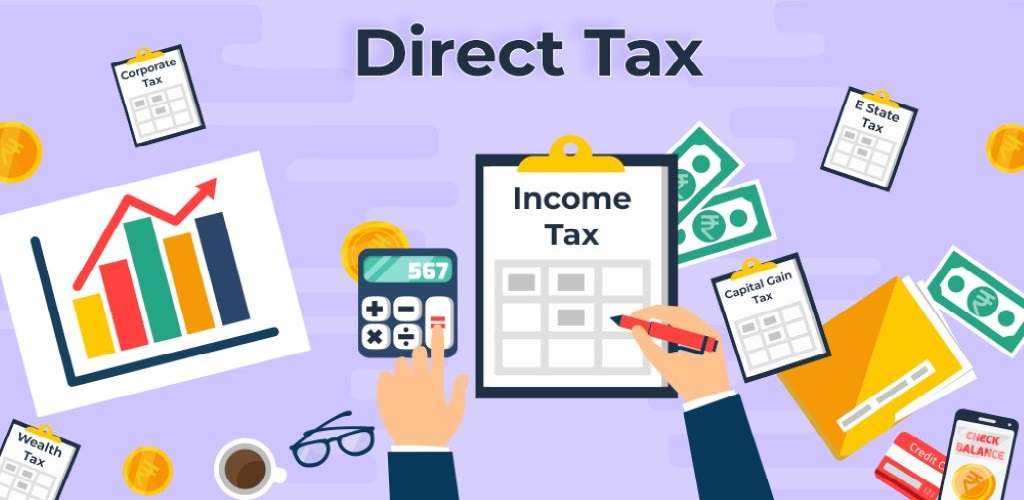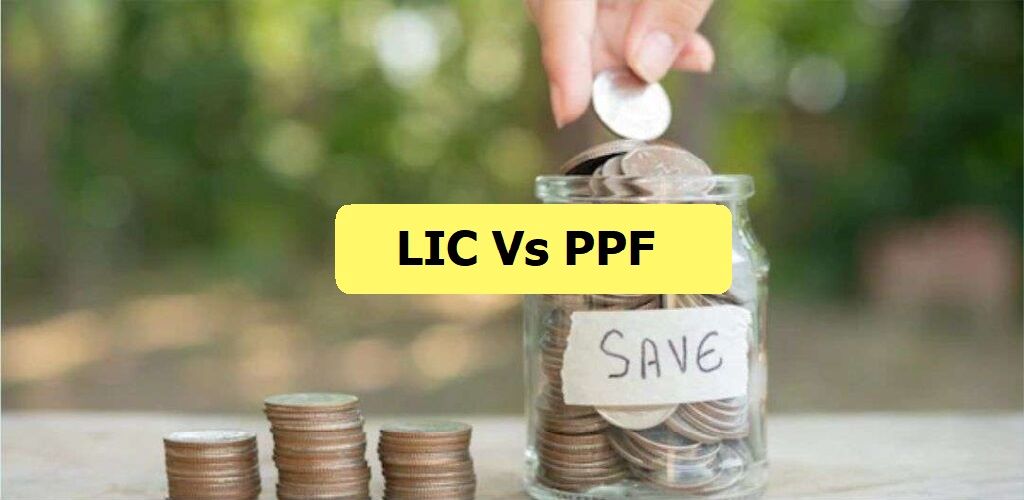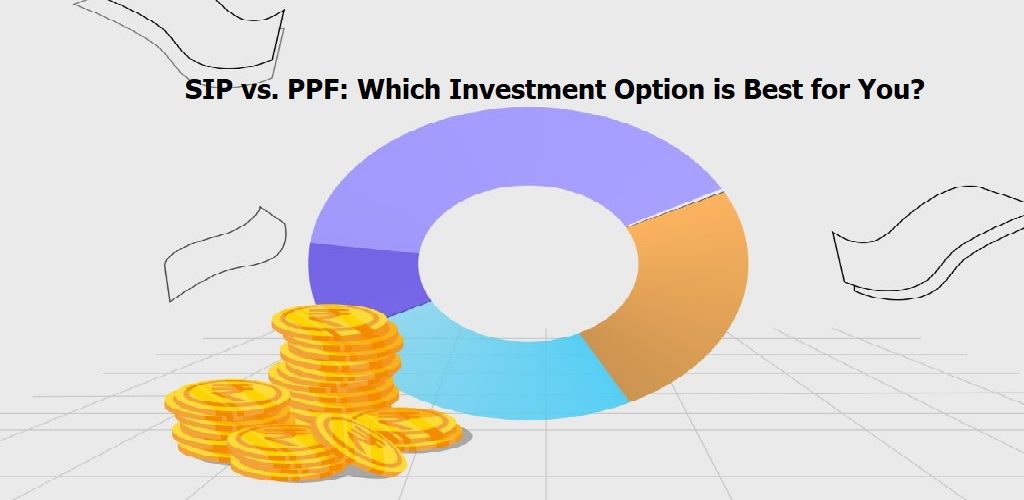Taxes are a crucial way for any government to generate money. This money helps transform the economy and improve the overall development of the country. Think of taxes as contributions that everyone makes to support public services and infrastructure.
Imagine you receive a paycheck from your job. Part of your salary goes to the government as income tax, a type of direct tax. When you go out to eat at a restaurant, you pay a tax on your meal. If you watch a movie at a theatre, there’s a tax included in your ticket price. When you drive your car, you might pay road tax or tolls. Even buying a simple packet of biscuits from a store involves paying a tax. These are examples of indirect taxes.
As a citizen, it is your duty to pay these taxes. But it’s also important to understand the different types of taxes in your country. In India, taxes are divided into two main categories: direct and indirect taxes.
But in this post, we’ll take a detailed look at the “Direct Tax” and its meaning, types, and importance.
What is Direct Tax?
In simple terms, a direct tax is a kind of tax that individuals and businesses pay directly to the government based on their income or wealth. Some of the common examples of direct taxes are income tax and corporation tax. These taxes are managed by the Central Board of Direct Taxes (CBDT).
The best part is that these taxes are pretty simple: The person or business earning the income pays the tax directly to the government without any middleman. This means if you earn money, you are responsible for calculating and paying your own taxes.
Furthermore, these taxes are progressive in nature. Remember that the more money you earn, the higher your tax rate will be. For example, someone with a high salary will pay more in income tax than someone with a lower salary.
It’s important to pay these taxes on time. If you don’t, you could face penalties, extra interest charges, and even imprisonment.
Who is Eligible to Pay Direct Tax?
In India, the following individuals and groups must file income tax returns and pay taxes on their income:
- Individuals aged up to 60 years
If they earn more than Rs. 2.5 lakh annually.
- Senior citizens aged between 60 and 80 years
If they earn more than Rs. 3 lakh annually.
- Super senior citizens aged over 80 years
If they earn more than Rs. 5 lakh annually.
- Hindu Undivided Family (HUF)
A joint family that is treated as a single entity for tax purposes.
- Body of Individuals (BOI)
A group of individuals who receive income collectively.
- Association of Persons (AOP)
A group of persons who come together for a common purpose and earn income.
- Corporate firms and companies
It includes all businesses and corporations.
- Artificial Judicial Person
It refers to the entities that are recognized as legal persons but are not natural persons, like deities or idols.
Types of Direct Taxes
Here are the different types of direct taxes. Let’s discuss them in detail!
- Income Tax
The first and foremost type of direct tax is income tax, which is based on an individual’s earnings and age. The Government of India sets income tax slab rates, which determine the amount of income tax that must be paid. Taxpayers must file their income tax returns annually. Failure to pay income tax can result in large penalties and even imprisonment.
- Wealth Tax
Wealth tax was an annual tax based on the market value of an owned property, regardless of whether the property generated revenue. However, the wealth tax in India was abolished on April 1, 2016.
- Corporate Tax
Another major type of direct tax is corporate tax which is paid by domestic companies, as well as foreign organizations earning income in India. This tax applies to income earned through the sale of assets, technical service fees, royalties, dividends, and interest from India.
- Securities Transaction Tax (STT)
Securities transaction tax is paid whenever transactions involving securities like shares and mutual funds occur. This tax applies to both individuals and entities.
- Minimum Alternative Tax
MAT is a tax imposed on companies that have zero tax liability based on their accounts prepared according to the Companies Act. Thus, it ensures that companies pay a minimum amount of tax.
- Dividend Distribution Tax
When a domestic company distributes dividends to its shareholders, it was previously required to pay dividend distribution tax. However, DDT was discontinued as announced in the Budget 2020.
- Capital Gains Tax
In the final type, capital gains tax is imposed on income earned from the sale of assets or investments, such as property, art, businesses, shares, mutual funds, and bonds. This tax is classified into short-term or long-term capital gains based on the holding period of the asset. The holding period requirement for long-term capital gains varies depending on the type of capital asset.
Why are Direct Taxes Important?
Direct taxes play a crucial role in nation-building for several reasons. First, they contribute to maintaining economic and social balance by applying taxes according to an individual’s income, which ensures that those who earn more contribute more. Second, they help curb rising inflation by reducing the demand for goods and services. Third, with a growing workforce, the influx of direct taxes increases, thereby generating more revenue for the government.
Moreover, direct taxes facilitate the equal distribution of wealth, as those with higher resources are required to make larger contributions, which are then utilized to support underprivileged sections of society. Lastly, direct taxes promote transparency in the economy, as they are paid directly by taxpayers to the government.
Benefits of Direct Tax
Let’s take a look at the incredible benefits of direct taxes.
- Social & Economic Balance
One of the biggest benefits of direct taxes is that the Indian government sets tax brackets based on income and age, adjusting them according to the country’s economic condition. There are also exemptions to ensure everyone pays their fair share, which ultimately helps to reduce income inequality and make the system fairer.
- Improved Productivity
When more people are working, the government collects more direct taxes. As the workforce grows, the amount of money coming in from taxes also increases. Thus, direct taxes are a valuable tool for boosting productivity and funding government programs.
- Inflation Prevention
When prices start going up too fast, the government often raises taxes. Thus, it makes people think twice before spending money, which can help slow down inflation. By adjusting taxes, the government can help keep prices stable and prevent the cost of living from getting out of control.
- Utmost Certainty
Direct taxes come with clear rules that both taxpayers and the government can rely on. Everyone knows exactly how much tax needs to be paid and collected, making it easier for both sides to plan ahead and manage their finances effectively.
- Progressive Regime
Last but not least, the government charges higher taxes to those who can afford to pay more. Thus, people with lower incomes aren’t hit as hard by taxes, which makes the tax system fairer and more equitable for everyone.
Impact of Direct Taxes on ULIPs
When it comes to ULIPs (Unit Linked Insurance Plans), there are a few tax rules to keep in mind:
- Long-term Capital Gains Tax
If you make a profit from selling ULIPs after holding them for a while, you may need to pay a tax called Long-term Capital Gains Tax, similar to other investments like stocks. This tax rate is usually around 10%.
- Tax-Free if You Pass Away
However, if something happens to you and your nominee receives the money from your ULIP, they won’t have to pay any tax on it.
- For Policies After February 1, 2021
If you bought your ULIP policy on or after February 1, 2021, and either:
- Paid insurance premiums of Rs 2.5 lakh or more in any previous year, or
- If you have bought multiple ULIP plans and the total amount paid is more than Rs 2.5 lakh, then the money you get at maturity, including any bonuses, might be taxable.t
Frequently Asked Questions
Listed below are the frequently asked questions related to direct taxes.
No, if you got your ULIP before February 1, 2021, you won’t have to worry about paying taxes on it.
Nope, GST (Goods and Services Tax) is actually an indirect tax.
Yes, both land tax and personal property tax fall under the category of direct taxes.
Direct taxes take a chunk out of people’s income, leaving them with less money to spend. So, they’re not very popular.
If you want to save on income tax, you can consider some of the popular forms of investments that may include Life insurance policies, Public Provident Fund (PPF), Sukanya Samriddhi Yojana, Senior Citizens Savings Schemes, Mutual funds’ Equity Linked Savings Schemes (ELSS), National Savings Certificate (NSC), and more.







